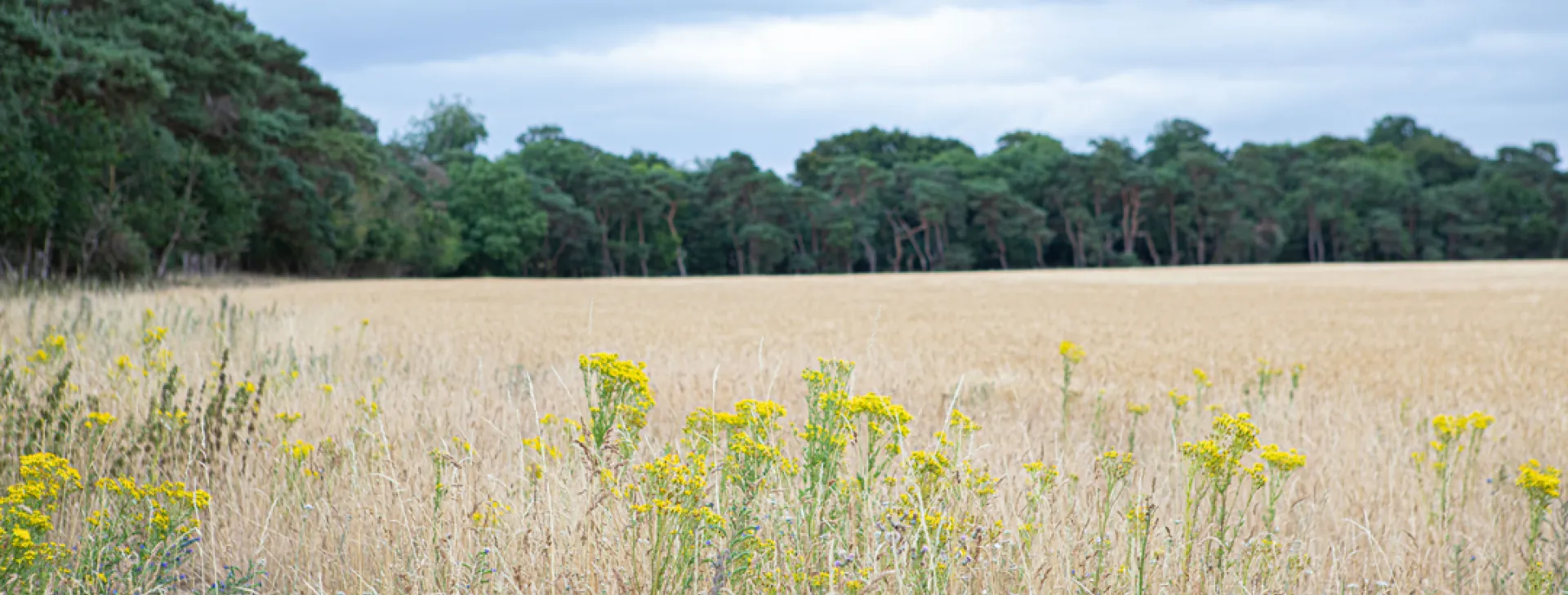As a global leader in agricultural innovation, Syngenta is committed to helping farmers around the world deal with enormous challenges – from safeguarding harvests from pests and diseases, to protecting the environment and improving the quality of their soils. Every day, we are focused on building a global food system that is more sustainable, productive and regenerative. We recognize the importance of holistic and nuanced solutions, and work closely with farmers, regulators, special interest groups and other important stakeholders across more than 100 markets globally, to bring solutions that improve agriculture.
Agricultural needs differ significantly worldwide due to environmental considerations such as pest pressure, climate, and crop rotations. Pesticide products are used based on an assessment of the risks and benefits by national level government and regulatory agencies in each country. The export of agrochemical products from the UK is undertaken in response to the direction and regulatory oversight of the importing country and within the framework of global treaties governing the export of chemicals, such as the Rotterdam Convention.
Regarding our own products, Syngenta recognises that these can be dangerous if not used in accordance with required protocols and protection, and we place considerable effort into promoting clear direction for use, alongside in-country stewardship to support in field. Syngenta further works to ensure safety of end users by putting in place measures at the production level too such as tamper proof bottles, emetics, stench agents, and closed transfer systems that significantly reduce the potential for accidental exposure to chemicals by users.
It is neither exploitative or unethical to provide products where the government and regulatory agencies of the importing country have provided express permission for the import and have directed and regulated use of those products within the specific agricultural context of that country.
Furthermore, we note that when sharing their opinions four years ago, the UN expert group made it also clear that export of pesticides is reasonable when in the public interest of a country. We believe it is important that any country should have sovereign rights and decide what is in their own interests. When it comes to the import of crop protection products, this is usually done via their own regulatory bodies, including for example the highly regarded and strict Brazilian regulatory body.
Whilst we are not able to vouch for the hundreds of other companies who provide non-patented agrochemical products into these markets, we take the stewardship of our own products extremely seriously.
Below is the statement that we have used to respond to some of the media queries:
Agricultural needs differ globally, and the use of agrochemical products is based on assessment by national governments of the risks and the benefits for use in their own country. On this basis, in some instances, Syngenta’s UK manufacturing facilities provide products no longer available or needed in a UK domestic context but deemed required for agronomic and agricultural reasons by farmers and regulators in the importing country. In exporting products from the UK, Syngenta respects the sovereignty and direction of the importing country, meets all the international regulatory requirements including Prior Informed Consent and provides stewardship and detailed information in country to promote the safe application by end users.
Herbicides such as diquat are essential tools for many farmers wanting to implement no/minimal till farming, a key component of regenerative farming practices. One of the main way farmers can reduce their carbon emission and improve soil health is by implementing no till practices together with the use of cover crops. Tilling to control weed growth releases carbon that has been sequestrated in the soil. Cover crops help replenish nutrients in the soil, boosting soil health and helping to reduce the need for chemical fertilizers. For most farmers implementing these regenerative practices of no till and cover crops to reduce the carbon footprint of our food, herbicides are key to enable this.
No-till farming, a well-established practice in Brazil, covers over 60% of the country's total planted area. Diquat's importance extends beyond weed control in no-till systems; it is also utilized in pre-harvest applications for soybeans. This practice helps ensure optimal timing for planting the second crop of corn (known as "safrinha" or little harvest in Brazil). The ability to precisely time harvest and subsequent planting means farmers can have two harvests per year on the same land, increase agricultural productivity and reduce pressure to clear new areas for cultivation.
The crop protection industry is already one of the most regulated industries. Syngenta is keenly aware of all relevant regulations, and strictly abides by these regulations in the production, sale and transport of our crop protection products.
Wherever we operate, we do this in full compliance with local laws and regulations.
We also wish to emphasize that:
- Syngenta does not manufacture the active ingredients Thiamethoxam or Chlorothalonil in the UK.
- Producing active ingredients for crop protection is a highly complex process. To ensure that our compounds meet the stringent production standards and have the highest quality, we produce in only a few places around the world, from where we export to more than 90 countries. Syngenta’s high-tech UK production plant is a global center of excellence with a proven track record and decades of experience.
- Blocking farmers’ access to high-quality and authorised products encourages a market for counterfeit and illegal product – many of which are produced by sophisticated criminal organizations using harmful and unregulated ingredients, that place farmers at even greater risk.
- Every year Syngenta trains 100,000’s of people in the safe use of our products. This year we expect to train over 55,000 individuals in Brazil alone. Data from an independent study led by a UCL doctor published in 2021 indicates that death by voluntary ingestion of pesticides in Brazil had been declining overall since 2011.
- All our exports comply with the strict requirements of UK chemical regulation.
- Paraquat and diquat are generic herbicides, and Syngenta is only one of hundreds of companies around the world that sell products containing these herbicides. In countries where Syngenta sells formulations containing paraquat and diquat, Syngenta implements a variety of product stewardship measures – including training, innovation in application technologies, improving formulation and use patterns to minimize the potential for exposure, and many other efforts, that distinguish Syngenta from other companies.
Published in Dec, 2024

